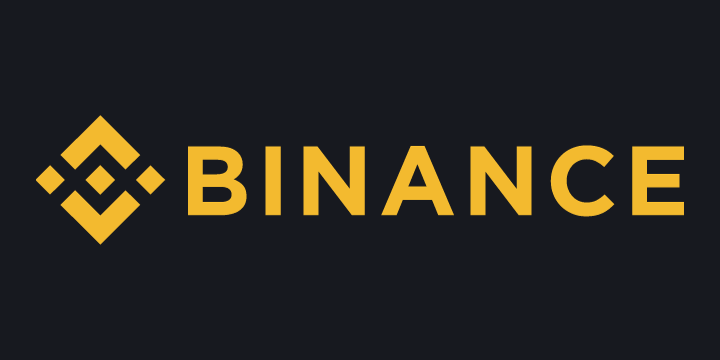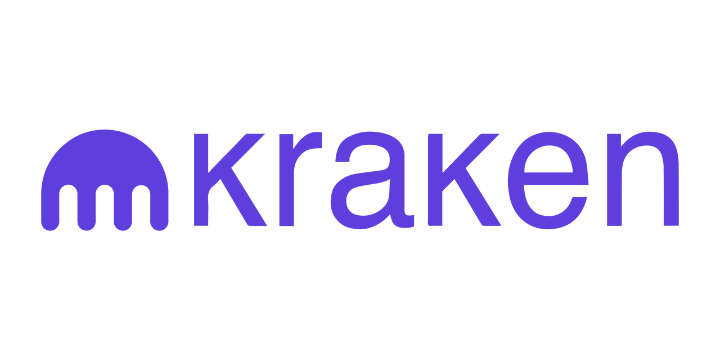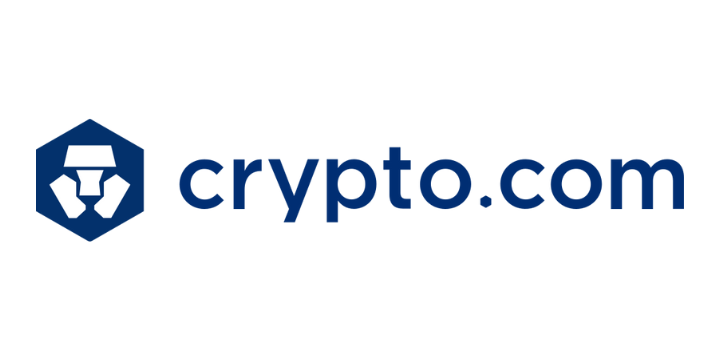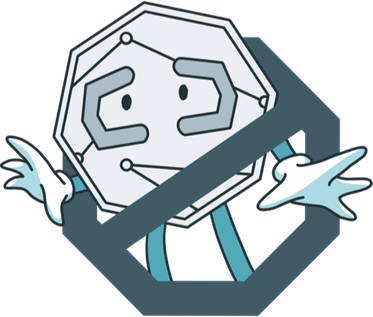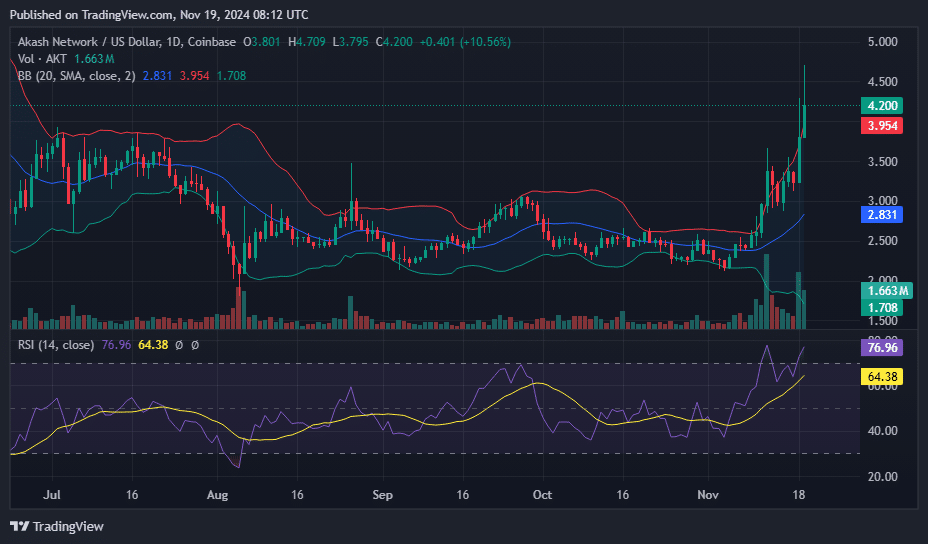Finance has been about decentralization for a few years now, and if you want to explore the decentralized finance (DeFi) ecosystem, you will need the best DeFi platforms. The best DeFi platforms offer high-end security features, decent interest rates, and consistent security audits.
Since blockchain technology has disrupted many industries, including the financial sector, it is only right that you know the ins and outs of the ecosystem to help you make the right choice. Therefore, this article digs through the factors to consider when choosing a DeFi app and the top ten platforms we recommend. Let’s get started!
Key Takeaways
- Decentralized Finance (DeFi) is reshaping how financial activities are conducted by providing users with effective financial services while removing the need for traditional financial institutions and middlemen.
- Hundreds of platforms stand out for their unique features, but the best DeFi platforms offer intuitive user interfaces and substantial interest rates without sacrificing security.
- The best DeFi platforms to consider in 2024 are Aave, Lido Finance, Uniswap, Ethereum, Curve Finance, Stargate Finance, Binance, Kraken, Compound, and Crypto.com.
What Is a DeFi Platform?
DeFi platforms encompass various applications and systems that use blockchain technology and cryptocurrency-backed technology to offer financial services. These systems operate on public blockchains, primarily Ethereum, allowing users to engage in financial transactions without middlemen like banks or brokers.
Decentralized finance (DeFi) uses smart contracts—self-executing contracts with the terms of the agreement directly written into code—to facilitate various financial services such as lending, borrowing, trading, and earning interest on assets.
One of DeFi’s primary goals is to displace the traditional financial system and eliminate the multiple limitations of the existing systems, including centralization. In addition, users can transact directly with one another, enhancing accessibility and reducing costs associated with traditional financial services.
Since the DeFi landscape encompasses a wide range of financial activities, including yield farming, decentralized exchanges (DEXs), and stablecoins, it is expected that there will be many DeFi platforms available.
All available platforms on the DeFi space offer various features and anonymity measures, but some are better than others. To ensure you make the right choice, here are the essential criteria to consider before choosing a DeFi platform.
Essential Criteria Before Selecting a DeFi Platform
![Best DeFi Platforms to Watch Out in [currentyear] 5 Essential Criteria Before Selecting a DeFi Platform](https://coinwire.com/wp-content/uploads/2024/09/essential-criteria-before-selecting-a-deFi-platform-1024x464.jpg)
1. Security and Auditing
Security is a top priority for DeFi platforms, especially with the rise of identity theft and other decentralized finance scams. So, look for platforms that undergo comprehensive third-party audits regularly to identify vulnerabilities and protect users’ assets. Regular audits and code reviews examine smart contracts and the codebase, allowing developers to promptly address security concerns as they come up.
2. User-Friendly Interface
Blockchain technology can be complex for many people, especially those new to the decentralized ecosystem. For a better experience, choose platforms with intuitive interfaces that provide clear instructions and an organized layout for a better user experience. Streamlined onboarding processes and accessibility protect you from making mistakes and keep your assets safe.
3. Asset Support, Fiat Pairs, and Liquidity
Consider the range of assets the DeFi platform supports and the variety of trading pairs available. A wide asset and trading pair pool will allow you to diversify your portfolio and explore various decentralized projects. Besides that, high liquidity is crucial to reduce slippage and offer competitive prices.
4. Interest Rates and Rewards
Assess the interest rates or annual percentage yield (APY) the DeFi platform offers on decentralized financial services. Offering rewards like yield farming and staking can attract users and those who provide funds.
5. Decentralization and Governance
Look for platforms with active community governance that allow users to participate in decision-making processes. Transparent governance models, including open communication and token holder participation, ensure decentralization, accountability, and community-driven initiatives should be at the top of your DeFi list.
6. Interoperability With Other DeFi Platforms
Opt for platforms that can simultaneously connect with other DeFi protocols, decentralized applications, and exchanges like Metamask, Zerion, and Ledger Wallet. This interoperability enables users to leverage the benefits of multiple platforms without switching from one platform to another.
Top 10 DeFi Platforms
We have reviewed the top DeFi platforms using security measures, interest rates, decentralization, and user experience to provide all the information you need to make informed decisions. Here is our list of the best DeFi platforms in 2024.
1. Aave
Aave is a decentralized finance (DeFi) protocol that allows users to lend, borrow, swap, and stake cryptocurrencies without a central intermediary. It provides a peer-to-peer money market for digital assets, enabling users to earn interest on deposits and take out overcollateralized loans.
![Best DeFi Platforms to Watch Out in [currentyear] 6 Aave](https://coinwire.com/wp-content/uploads/2024/09/aave-1024x576.jpg)
Aave uses smart contracts to automate lending and borrowing, eliminating the need for a centralized authority. On Aave, users deposit supported cryptocurrencies into Aave’s liquidity pools to earn interest as lenders. Meanwhile, borrowers provide collateral exceeding the loan amount to take out a loan in another cryptocurrency, usually stablecoins.
Aave overcollateralized the loans to protect lenders in case of market volatility or the borrower’s inability to repay. Here are the major features of Aave;
- Lending and Borrowing: Users can deposit supported cryptocurrencies into Aave’s liquidity pools to earn interest, while borrowers can take out loans by providing collateral exceeding the borrowed amount.
- Health Factor: Aave allows users to easily track the risk level of their borrow positions, ensuring each user makes decisions with the best available information.
- Flash Loans: Aave offers unique flash loans that allow users to borrow assets without collateral as long as the loan is repaid within the same transaction block.
- Governance: The Aave protocol is governed by the community through the AAVE token, allowing token holders to propose and vote on changes.
To use Aave, you need a decentralized wallet corresponding to a network, such as a hardware wallet, browser extension, mobile wallet, or multi-signature wallet. You can connect your wallet using browser wallets (MetaMask and Trust Wallet), WalletConnect (BC Vault and Zerion), and more.
2. Lido Finance
Lido Finance is another top DeFi platform that allows access to open and transparent financial services. This platform is known for its user-friendly interface for swapping, staking, lending, and borrowing cryptocurrency. Besides user-friendliness, Lido Finance combines accessibility, high liquidity, and robust security for those involved in Ethereum staking.
![Best DeFi Platforms to Watch Out in [currentyear] 7 Lido Finance](https://coinwire.com/wp-content/uploads/2024/09/lido-finance.jpg)
Here are the key features of the Lido Finance DeFi platforms;
- Liquid Staking: When you stake Ethereum (ETH) with Lido Finance, you will receive Lido’s flagship product, staked-ETH (stETH) tokens, in return, plus additional rewards. The stETH tokens represent the staked ETH and qualify users to continue to earn staking rewards.
- No Lock-Up: Lido’s liquid staking allows users to retain liquidity. The stETH can be used in various DeFi protocols traded in various secondary markets, including Aave, 1inch, Balancer, and Beefy Finance, and the tokens are treated similarly to the original ETH.
- Accessibility: One of the best things about Lido is that it lowers the entry barrier for staking on Ethereum. You can use Metamask, Curve, and Ledger Crypto Wallet, and you do not need to operate a validator node or possess the full 32 ETH required to stake on Ethereum 2.0.
3. Uniswap
Uniswap is a leading decentralized exchange (DEX) operating on the Ethereum blockchain, enabling users to trade cryptocurrencies directly without middlemen. The platform uses an automated market maker (AMM) model, relying on liquidity pools rather than traditional order books to facilitate trades.
This model allows for seamless ERC-20 tokens and ETH swapping in a trustless environment, where users maintain control over their funds through non-custodial wallets. Uniswap’s native governance token, UNI, was introduced in September 2020, allowing holders to participate in decision-making processes related to protocol changes and funding initiatives.
4. Ethereum
Ethereum supports multiple dApps and has been a top contender in the decentralized space, making it a hotspot for developers and investors. While it has faced scalability issues promoting the development of the Hedera Network, its high transaction fees are still a long shot for users.
![Best DeFi Platforms to Watch Out in [currentyear] 8 Ethereum](https://coinwire.com/wp-content/uploads/2024/09/ethereum-1024x768.jpg)
Ethereum network moved from the proof-of-work (PoW) to the proof-of-stake (PoS) model in September 2022 to address some of its limitations. This move significantly improved the Ethereum network’s scalability issues, reduced energy footprints, and lowered transaction times.
While it might take some time to achieve this level of energy conservation, improved scalability, and the 100,000-per-second promise, Ethereum remains one of the top DeFi platforms in the ecosystem. As these new developments roll out, users will enjoy an extra layer of security, better user experience, and future-proofing.
5. Curve Finance
Curve Finance was launched in January 2020 by Michael Egorov. It operates on multiple blockchains, including Ethereum, Polygon, and Fantom, and employs an automated market maker (AMM) model using automated liquidity pools to determine asset prices.
![Best DeFi Platforms to Watch Out in [currentyear] 9 Curve Finance](https://coinwire.com/wp-content/uploads/2024/09/curve-finance-1024x576.jpg)
It is a decentralized exchange (DEX) primarily focused on stablecoin trading, designed to minimize slippage and enhance trading efficiency. This structure allows users to earn income from trading fees while maintaining low risks associated with impermanent loss, particularly because it centers on stablecoins like USDT, USDC, and DAI.
Curve’s governance is managed through its native token, CRV, which enables holders to vote on key decisions affecting the protocol. Users can also engage in yield farming and liquidity mining, with potential annual percentage yields (APYs) reaching over 20%, depending on the liquidity pool. Here are some of the features of Curve Finance:
- Low Fees and Slippage: Curve’s AMM minimizes the risk of slippage for tokens with similar value, making swaps more efficient and keeping fees low.
- CRV Token: Curve’s native token, CRV, can be used for staking, generating rewards, and community governance.
- Integration With External DeFi Protocols: Curve integrates with external DeFi protocols and rewards liquidity providers with CRV tokens and interest.
The DeFi platform’s main goal is to connect users who want to exchange ERC-20 tokens and stablecoins with DeFi protocols, and its efficient liquidity pool is used by other applications, such as Yearn Finance or Compound.
6. Stargate Finance
Stargate Finance is a fully composable liquidity transport protocol. This blockchain-based financial system operates at the core of omnichain decentralized finance (DeFi), enabling users and decentralized applications (dApps) to transfer native assets across multiple blockchains while utilizing unified liquidity pools.
![Best DeFi Platforms to Watch Out in [currentyear] 10 Stargate Finance](https://coinwire.com/wp-content/uploads/2024/09/stargate-finance.jpg)
This allows for instant and guaranteed transaction finality, enhancing cross-chain asset transfer efficiency. It addresses the blockchain trilemma—balancing decentralization, security, and speed—by enabling users to transfer and swap assets across multiple blockchains and layer-2 networks.
In simpler terms, Stargate facilitates seamless interaction between various DeFi protocols. It supports liquidity provision, staking, and farming, making it a versatile platform for users looking to engage in cross-chain activities. Stargate’s native token, STG, can be staked on the Stargate platform and is used to reward users who provide liquidity.
You can also buy Stargate Finance on various crypto exchanges and swap them for other crypto assets, with some platforms offering over 200 trading pairs, including STG/USDT, STG/EUR, and STG/ETH.
7. Binance
Binance offers decentralized financial services that leverage blockchain technology to provide users with alternatives to traditional financial systems. It was first launched as a centralized exchange in 2017 and gradually became the largest cryptocurrency exchange by trading volume.
![Best DeFi Platforms to Watch Out in [currentyear] 11 Binance](https://coinwire.com/wp-content/uploads/2024/09/binance-1024x688.jpg)
While this adoption increased, Binance rolled out various features that enabled users to explore the decentralized ecosystem, pushing it to the list of best DeFi platforms. This DeFi platform supports applications that enable peer-to-peer lending, borrowing, and trading without intermediaries.
It also allows users to stake tokens, engage in yield farming, and access DEXs directly from their wallets. Besides this access, Binance also offers a web3 self-custody wallet that facilitates seamless interaction with DeFi applications, allowing users to trade tokens across multiple blockchains.
8. Kraken
Kraken is one of the largest cryptocurrency exchanges and another DeFi platform that makes it easy for users to participate in the decentralized financial economy. Kraken allows users to trade the most popular DeFi assets, including:
- Uniswap (UNI)
- Aave (AAVE)
- Compound (COMP)
- Yearn.finance (YFI)
- Maker (MKR)
![Best DeFi Platforms to Watch Out in [currentyear] 12 Kraken](https://coinwire.com/wp-content/uploads/2024/09/kraken-1024x684.jpg)
So, Kraken is a solid platform whether you are looking to purchase crypto before using it in a DeFi protocol or to convert it into other tokens or cash. Kraken enables users to earn rewards by providing liquidity to DeFi protocols through yield farming.
When you deposit crypto assets into liquidity pools, you can generate passive income through interest or governance tokens. Additionally, the DeFi market on Kraken offers borderless lending and borrowing opportunities. You can lend your crypto assets to earn interest or borrow against your holdings to leverage your positions. Users also do not have to worry about security or interoperability.
9. Compound
Like other platforms on our list, Compound (COMP) allows you to earn interest on various cryptocurrencies. Compound is built on the Ethereum blockchain and allows users to borrow assets or earn interest by lending their cryptocurrencies without the need for traditional financial institutions.
With Compound, users can supply supported cryptocurrencies, such as Ethereum, Wrapped Bitcoin, Tether, USD Coin, BAT, and DAI, to the protocol and earn interest based on the demand for that asset. Borrowers can take out loans by providing collateral in the form of other supported cryptocurrencies.
This is because it serves as a money market, and the interest rates on Compound are determined algorithmically based on the supply and demand of each asset. The more a particular asset is in demand for borrowing, the higher the interest rate for lenders of that asset.
10. Crypto.com
Crypto.com was founded in June 2016 and currently services 80+ million users across various countries in the globe. It is a great choice for anyone starting in the DeFi ecosystem due to its user-friendly interface. The platform makes it easy to stake and swap tokens, track earnings, and withdraw your assets as you please.
Security is a top priority for the developers of the Crypto.com DeFi platform. It provides robust security features, including a cold wallet option, multi-factor authentication (MFA), compliance monitoring, and two-factor authentication, to ensure that users’ data, information, and funds are secure.
Additionally, it offers 350 cryptocurrencies and 20+ fiat currencies, giving users the flexibility to diversify their portfolio by spreading their assets across different coins.
Conclusion
If you are considering getting into the DeFi ecosystem, you will need a reliable DeFi app to keep your digital assets safe and secure. A good start is to explore this extensive list of best DeFi platforms in 2024.
All ten platforms on our list of the best DeFi platforms are safe, decentralized platforms for cryptocurrency investments and exchange. These platforms enhance the DeFi experience with robust security measures and intuitive design for new and existing users.
They are also compatible with various decentralized financial institutions and applications. This compatibility allows users to engage in lending, staking, swapping, and trading across multiple blockchain networks.
Elevate your crypto trading career with CoinWire Trading signals. Get Premium daily signal calls, trading insight, updates about the current market, and analytics about hidden crypto gems now.
FAQs
1. What Are the Top DeFi Lending Platforms in 2024?
The top DeFi lending platforms in 2024 are Aave, Crypto.com, Compound, Lido Finance, Uniswap, and others on this list. These platforms support multiple assets, offer competitive interest rates and strong security measures, and facilitate decentralized lending and borrowing features.
2. Which DeFi Platforms Stand Out as the Best for Trading in 2024?
If you are looking for the DeFi platforms that stand out, consider using Compound, Aave, Uniswap, and other platforms on this comprehensive list. In all you do, ensure you do your research to find the best platform for your needs.
3. What Are the Best DeFi Staking Platforms to Consider in 2024?
The decentralized finance (DeFi) sector continues to expand, offering various staking platforms that allow cryptocurrency holders to earn passive income. So, when it comes to staking platforms, opt for Binance, Aave, Crypto.com, and Ethereum.
4. What Are the Top 5 DeFi Projects?
Curve Finance, Aave, Compound, Lido Finance, and Kraken represent some of the most prominent and successful DeFi protocols. These projects offer decentralized trading, lending, borrowing, swapping tokens, and staking services. Additionally, they allow users to connect with other DeFi protocols effortlessly.
5. Which DeFi Wallet Is Best?
The best DeFi wallet for you depends on your investment and general needs. However, all DeFi platforms on this list have high-end decentralized lending protocols, are safe and secure, and offer other features that ensure a smooth experience, gaining significant traction and adoption within the crypto community.
6. What Sets Compound Apart as a Top DeFi Lending Platform?
Compound establishes a money market and stands out for its algorithmic interest rates and the ability for users to lend and borrow various assets. So, the higher the borrowing, the higher the interest rate on that particular asset.


